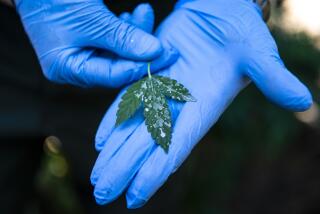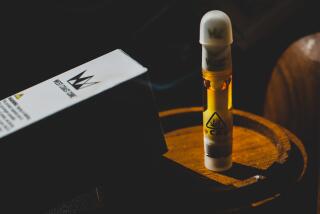Magazine’s Seafood Expose Leaves Bad Taste in Alaska : Marketing: Consumer Reports article has state officials steamed . . . and scrambling to prove the quality of its salmon.
- Share via
ANCHORAGE — Alaska officials said that a Consumer Reports story about bad seafood in supermarkets has created a public-relations disaster for the state, where commercial fishing is the top private-sector employer and salmon is one of the primary sellers.
“It could be devastating,” Kim Elton, executive director of the Alaska Seafood Marketing Institute, said last week at a special hearing of the Alaska House Resources Committee.
Lawmakers called for stiff national fish-inspection standards and for an aggressive state marketing program to separate wild Alaska salmon from the farmed products they characterized as inferior.
Some said the state should sue Consumers Union, the public advocacy group that publishes Consumer Reports, or demand a retraction of the story, which alleges that much of the fish sold as fresh in U.S. supermarkets is spoiled.
The magazine article says that nearly half of the 20 samples of salmon from New York and Chicago stores were tainted with cancer-causing polychlorinated biphenyls (PCBs). It also advises pregnant women to refrain from eating salmon.
Elton told lawmakers that the magazine story poses a crisis for the state-run marketing agency similar to the publicity problems the agency faced after the 1989 Exxon Valdez oil spill.
The state agency has hired Burson Marsteller of Los Angeles to help head off a possible nationwide salmon scare, he said, the same firm hired in 1989 to reassure consumers that Alaska fish in grocery stores were untainted by Exxon oil.
The agency also sent samples of Alaska salmon to the National Marine Fisheries Service laboratory in Seattle and two other labs to test for PCBs and other contaminants, Elton said.
He said he is confident that the Alaska fish will test clean. “Our salmon are migratory, and they’ve been swimming in some of the most pristine waters in the world,” he said.
Elton said he doubts that any of the fish tested for the magazine article came from Alaska, and he noted that Consumer Reports has admitted that it is uncertain of the origin of the tested fish.
Rep. Bill Hudson, a Juneau Republican who headed the Alaska Seafood Marketing Institute in the mid-1980s, said he is nearly positive that the salmon found by Consumer Reports to be contaminated was Norwegian farmed fish that has glutted large U.S. markets.
More to Read
Sign up for Essential California
The most important California stories and recommendations in your inbox every morning.
You may occasionally receive promotional content from the Los Angeles Times.










